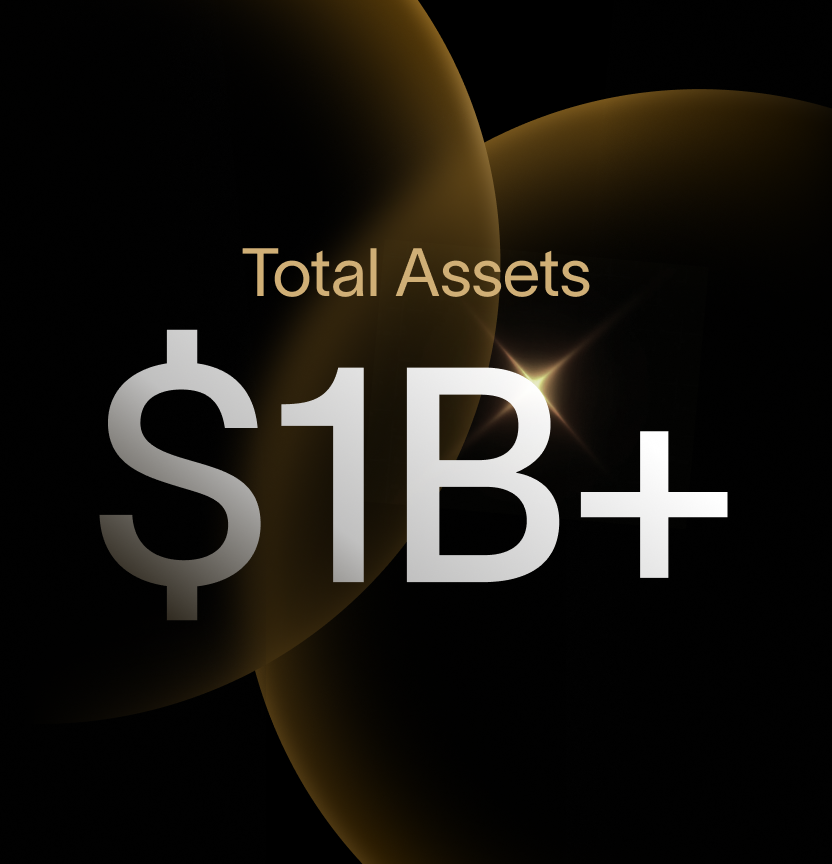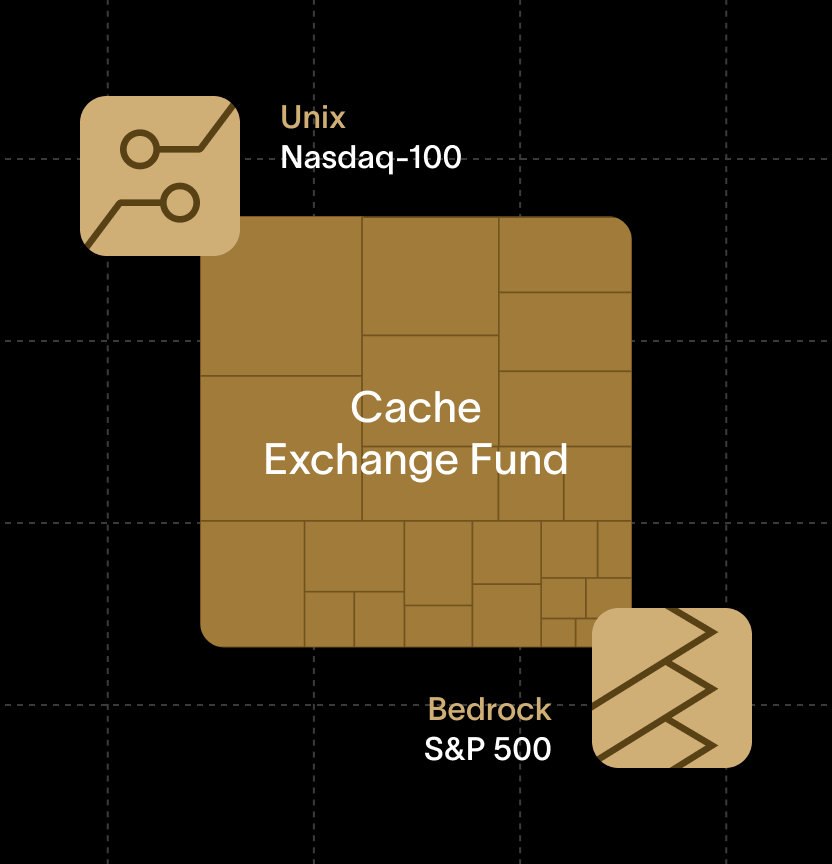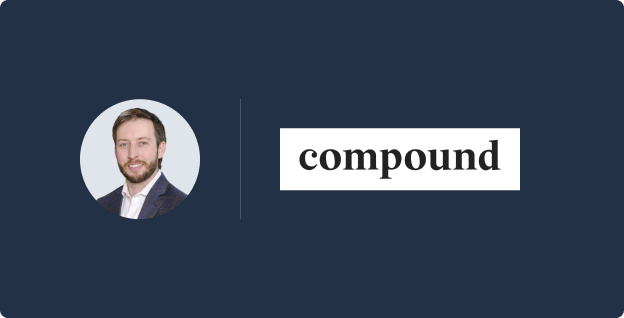Adding more value with the only modern exchange fund.
Aaron White, the Chief Growth Officer of Adero Partners was looking for a better way to help clients diversify their concentrated stock positions. With its home in Silicon Valley, Adero’s clients often earn stock compensation and invest in individual high-growth stocks. As a result, many of the portfolios his team manages are concentrated in one or two positions. For many of Adero’s clients, these concentrated positions represent years of hard work and success but also come with significant risk during market downturns.
White knew about exchange funds, but he didn’t consider them to be a viable strategy for many of Adero’s clients: ”In the past, the cost structures were not favorable, fees were higher, there wasn’t much transparency on what stocks you would get — and the minimums were too high for many investors.”
“I connected with Cache early last fall and had some initial conversations, completed a review, and we were really impressed with what we saw.”
Watch Aaron’s story here, or read on for a closer look at how Cache helps Adero serve its clients better:
<p class="blog_disclosures-text">This endorsement was provided by Aaron White, who is not a direct client of Cache Advisors, LLC but is currently an employee of Cache. At the time of the endorsement, Aaron was employed by Adero Partners, an unaffiliated investment adviser, and received no compensation for the testimonial. A conflict of interest exists, as Aaron is now compensated by Cache and has a financial incentive to support the firm’s growth. This endorsement may not reflect the experience of others and is not a guarantee of future results.</p>
A new way to serve clients
As the Chief Growth Officer, White knew that exchange funds could be a useful tool. ”Stockholders frequently find themselves at the crossroads of deciding between diversification and efficiency,” said White. “Our clients can have both by leveraging the Cache Exchange Fund.”
Exchange funds allow investors to pool their appreciated stocks together and swap them for a pro rata share of the fund that’s created. There’s no sale, so capital gains taxes are deferred — and after seven years, each participant can withdraw a diversified basket of stocks. Capital gains aren’t recognized until those stocks are eventually sold.
“This solution mitigates concentration risk while preserving the benefits of pre-tax compound growth,” said White. To give a hypothetical example, this is what might look like if one of Adero’s clients with $1M of appreciated AAPL used an exchange fund to diversify:
Deferring taxes ensures more of the principal is working for your client

If you want to dig deeper, here’s a detailed look at exchange funds.
For Adero, gaining the ability to reduce risk immediately without paying capital gains taxes upfront had the potential to pay big dividends. Cache also made it easier to onboard clients quickly, with a lot less back and forth than the firm experienced with traditional exchange fund providers.
It also helped Adero add a lot more value to its relationships.
{{black-diversify}}
Generating interest from existing (and new) clients
When Adero added the Cache Exchange Fund as an option, it gave the firm a new reason to reach out to clients — and a new way to engage them.
The Cache Advisor portal let Adero’s team import a list of concentrated positions to instantly see which stocks could receive allocations for the fund. Monthly closings allow new positions to be added to the fund without a long wait. And the combination of streamlined online onboarding plus accounts clients can access themselves make it easy for everyone to get set up and keep tabs on performance.
The Cache team also created marketing opportunities by helping Adero write a blog post and put on a webinar, which it used to connect with clients and prospects via email and social media platforms.
It was a great way to show off Adero’s role as a thought leader, while catering to clients’ unmet needs:

Adero’s story even got picked up by Barrons.
The result? New AUM and client tax savings.
“Smart tax management and avoiding large losses are the most effective ways to consistently enhance investment returns,” said White. By offering a modern exchange fund that was more accessible for clients, Adero was able to deliver on this strategy.
It gave the firm a way to add more value to its client relationships, to take more assets under management, and to lure prospective clients who hold appreciated positions in growth stocks. “Cache has enabled many of our clients to eliminate single stock risk without paying a hefty diversification tax,” said White.
If you’d like to see how Cache can help your firm, set up a time to talk or enter some basic information to see if an allocation is available.
<p class="blog_disclosures-text">Products offered by Cache Financials, Inc. (Cache) are distributed by Cache Securities LLC, an SEC-Registered Broker-Dealer and Member of FINRA and SIPC. Cache Advisors LLC is the advisor to the Cache Exchange Fund and is an Investment Advisor registered with the SEC. Registration does not imply a certain level of skill or training. Investments are available only to residents of the United States in jurisdictions where Cache is registered.</p>
<p class="blog_disclosures-text">The purpose of this material is to inform, and it should not be considered an offer, solicitation of an offer, or advice to buy or sell securities or investment products. The investments mentioned may not be appropriate for all clients. All investments involve risk. Cache does not make investment recommendations; investors are responsible for their investment decisions. Before making an investment decision, each investor should carefully consider the risks associated with the investment and decide, based on their particular circumstances, that the investment is within their investment objectives and risk tolerance.</p>
<p class="blog_disclosures-text">The Cache Exchange Funds are alternative investments. Regulations require certain eligibility criteria for participation and are open to either accredited investors or qualified purchasers who have eligibility criteria as specified in the offering documents. Exchange funds are suitable only for eligible, long-term investors willing to forego liquidity and put capital at risk for substantial periods. Regulations require a minimum holding period to realize the potential advantages. They may also have higher fees than traditional investments.</p>

















